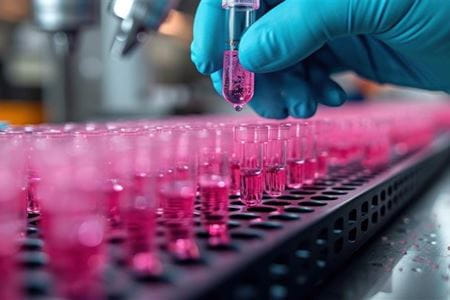In the United States, about one in eight women will develop some form of breast cancer in their lifetime. Because of this, it is the second most common cancer overall and second leading cause of cancer deaths in women.
Breast cancer can impact Black and brown women in different and more significant ways than white women. Black and brown women are known to have higher breast cancer mortality rates, as well as a higher rate of being diagnosed with aggressive subtypes, such as triple negative breast cancer. Continued research has also found that Black women are statistically more likely to have diabetes, heart disease and obesity — all of which are also risk factors for breast cancer.
According to the National Cancer Institute website, overcoming these disparities will require finding and adopting ways to engage diverse populations as active participants in research while eliminating barriers to high-quality preventive care, screening and treatment.
To bring more awareness to this cause, Indiana University’s Susan G. Komen Tissue Bank partnered with the WNBA All Star Host Committee, the WNBA All-Star Game will be held this year in Indianapolis. Together, they’ve organized the “All-Star Cure,” a two-day tissue collection event taking place from July 12-13. The tissue bank’s goal is to collect breast tissue samples from 500 women, with a particular focus on Black and brown women and women under the age of 40 of any race or ethnicity.
“Aside from volunteers, however, one of our greatest needs by far is for surgeon assistants on Saturday and Sunday afternoon,” said Kathi Ridley-Merriweather, PhD, the communication, recruitment and outreach manager for the Komen Tissue Bank. “Being able to donate to the tissue bank not only helps researchers but it also helps those donating to feel like they are making a difference.”
Portia Bailey-Bernard, who is on the host committee for the 2025 WNBA All-Star Game, was intrigued by the mission of the Komen Tissue Bank but also on a more personal note, as Bernard has family and friends who’ve been diagnosed with breast cancer.
“The biggest thing for me is when you hear that news from a family member or friend you kind of feel helpless in that moment,” she said. “[Donating tissue] is actually something that you can do to drive impact for generations to come.”
As Bernard learned more and heard that the donors were seeking Black and brown women, as well as women under age 40, she knew that this was something she had to participate in.
“The more I learned — and then having experienced a loved one going through diagnosis and treatment — it made me ask myself, ‘What can I do to support the All-Star Cure and getting volunteers?’” she said.
Rae McLean, senior director of community engagement for the Indiana Pacers, also donated tissue to the Komen Tissue Bank after breast cancer touched her family, and she was driven to make a difference.
Two and a half years ago, McLean’s sister passed away at the age of 34 from breast cancer. As her family had no prior history of breast cancer, getting tested for it was not something they had done often. After having her child, McLean’s sister thought that maybe the breast pain she was feeling was due to breastfeeding. However, once they diagnosed it, the breast cancer had already advanced to Stage 4, and she passed away three and a half months later.
“Now that I am creeping up on the age that [my sister] passed away, it makes me realize that women should be getting tested sooner and try to find a way to get ahead of it rather than deal with it after the fact,” McLean said.
When McLean found out that the Komen Tissue Bank was looking for volunteers to donate tissue samples, she signed up immediately. McLean described the process easy, welcoming and very rewarding. She said that she felt like a “superstar” when she first arrived due to the beautiful big windows and the multiple smiling faces as she entered through the doors to begin her donation process. Once you are checked in, there is someone who walks with you through every station and makes sure that you are feeling OK and answers all your questions until the process is over, she said.
“This made it feel like I was not in this alone and that someone was there comforting me, which is really important” McLean said.
After completing consenting paperwork, the donor is weighed, her height is measured, and she completes a medical history questionnaire. Next, a small vial of blood is taken, and then the donor goes into the exam room for the tissue sample procedure, which takes about 20 minutes. The donor is given ice and aftercare instructions before going home. The entire process last about 60-90 minutes.
“Stories like Bernard’s and McLean’s remind our community that behind every donation is a deeply personal reason, and a powerful opportunity to make a difference,” Ridley-Merriweather said.
The Komen Tissue Bank continues to rely on generous tissue donors to help advance breast cancer research. If you’re interested in donating breast tissue, volunteering as a surgical assistant or learning more about how to contribute please, visit allstarcure.org to find out how you can be part of this meaningful work.
